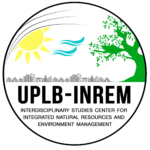Science and Engineering Journal Volume 16 (Supplement): In this study, the individual travel cost method and Poisson regression are used to estimate the recreational benefits of Lake Pandin as an ecotourism site. It was assumed that the recreational value of Lake Pandin would be reflected by the travel cost incurred by the tourists during the visit. The local travel origin of international tourists was used to avoid overestimation of recreational value and consumer surplus per trip. A survey was conducted among 250 random foreign and local tourists who visited the lake for leisure between September 2019 and February 2020. The sample size was 35 individuals over the 215 required interviewees estimated using the G*Power statistics software. Based on the applied truncated Poisson model, the visitation rate was affected by travel costs wherein the increase in cost reduced the likelihood of tourists visiting Lake Pandin. The coefficient of travel cost revealed that a peso increment would increase the number of visits in the lake by ~0.0011%. The estimated use-value of Lake Pandin was based on tourists’ perceptions upon visiting the lake. The use value of the lake revealed a consumer surplus of PHP 1,652.34 per visit per person in a year, with a total recreational benefit of PHP 48,795,439.52. Applying the present value of the total consumer surplus considering the 2019 tourist arrival data of 29,531, the estimated value of the total consumer surplus of Lake Pandin is PHP 53,674,983.47. Applying r at 10%, the present value of the total consumer surplus is estimated to increase to PHP 78, 585.30 by 2023. This implies that Lake Pandin has great potential for future development. However, the balance between economic benefits and environmental significance should be crucially considered to prevent future degradation of the site. Hence, the evaluation of its biophysical aspects is recommended to enhance the sustainable management of the site.
